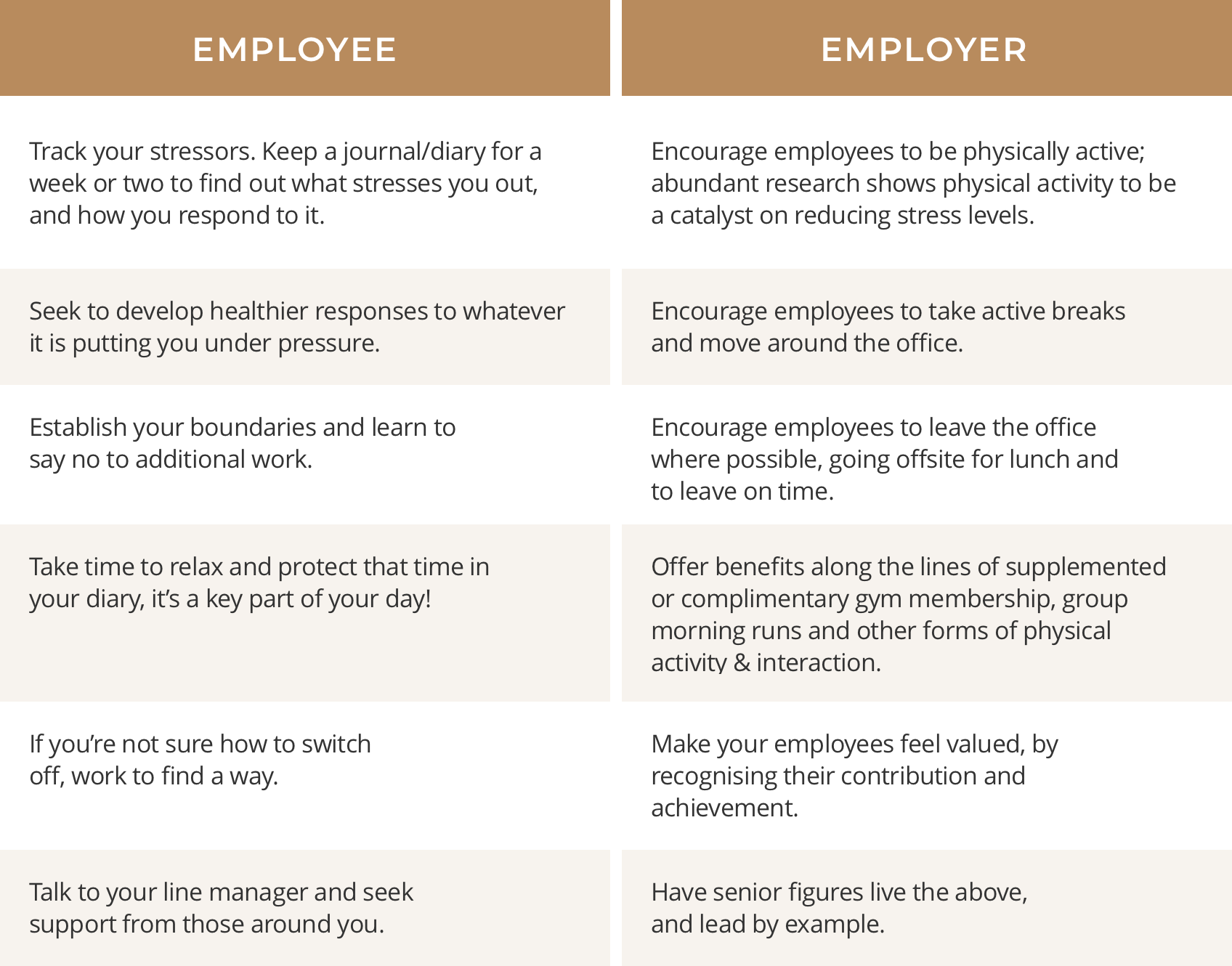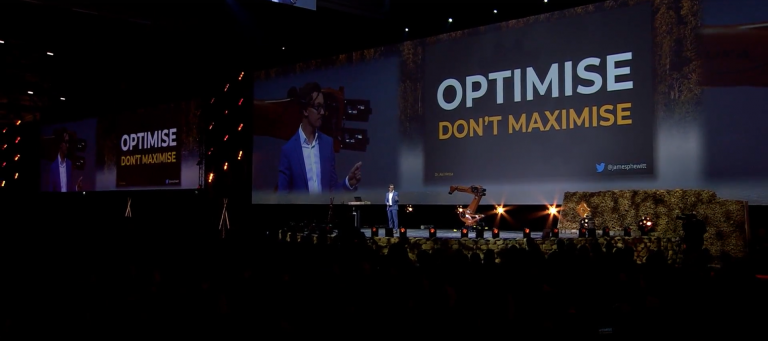Managing Stress – Here’s What You and Your Company Can Do

Stress. The Oxford dictionary defines it as “pressure or tension exerted on a material object”. That, of course, is the physical definition. Which, in a physiological context of weight training for example, is desired; stressing a muscle, through training, to experience growth. Conversely, the same can’t be said of the psychological definition.
Just reading by the word, most people will immediately think of the emotional and mental pressures associated with it. At a time where the world is connected more than ever, access to our work is constant (if we choose it), and the lines are blurred like never before, we end up working all hours of the day and night, the impact this is having on the general population is compounding.
What it is, how it manifests and how it impacts our daily lives is well documented; the questions I’d like to pose however, are what do each of us do as individuals, and what do each of us do as employers, to ensure stress is managed in a proactive and supportive manner? Investing in people was the topic of one of our recent white papers, I, however, I am looking at this through a slightly different lens.
Mental health related illnesses on the rise
Medical provisions are ever evolving, wellbeing is on everyone’s radar, and according to the Office for National Statistics in the UK, the average days lost to illness, per worker, were in 2017 at their lowest (4.1) on record. Comparatively, people were missing 7.2 days of work per year due to illness, in 1993.
However, according to the same source, mental health related illnesses are at their highest point ever and are THE prime reason for someone being off work. Of 26.8 million sickness days in the UK, those related to stress, anxiety and depression accounted for 15.4 million; which is a 25% rise on 2 years previous. According to the Money and Mental Health Policy Institute, a total of 2.3 million people in the UK are experiencing mental health related conditions, which impact the amount of paid work they can undertake. Of a working population of 33.2 million, almost 10% feel the financial impact of stress and other mental health related conditions. How many others are either brushing their worries under the carpet or suffering in silence?
‘Always on’ culture is taking its toll
The statistics above beg a number of questions. Are we all indeed, more stressed than ever? Is this hyper-connected world, 24h email culture, extensive travel and challenging targets at work, taking such a toll? Or, after colossal efforts in the form of campaigns and raising awareness about stress and mental health, more people disclosing their struggles with stress and anxiety? Are more people happy to disclose their health issues are mental, rather than physical? Do more people accept being signed off work by a doctor for stress, rather than a ‘virus’?
Stress management is a two-way street. Ownership and responsibility falls equally on us as individuals, as it does on us as employers. Below are 6 techniques, outlined by the American Psychological Association, for both employees and employers, in order to minimise the impact stress has on our working and personal lives.
6 techniques for managing stress

Perhaps the key components of the points above, are communication and awareness. Being open in terms of how, as employees, we are feeling, whether we are under unmanageable pressure, and being able to communicate this openly, to those around us. As employers, taking time to check in with each of our employees, being aware of their situations both inside and outside of work, and being able to support them under the stressors they are faced with. A core component of company culture should be for each and every employee, from the CEO to the newest recruits, follow the techniques above and lead each other by example.
Make every day a mental health day
Despite what at times may seem like an unhealthy influx of technology in our lives, the fact of the matter is, it’s omnipresent in our lives. Personally, I’ve engaged with a handful of apps to practice mindfulness for example, or give myself a lift; some popular ones, for example, are Headspace, Calm, and Happy Not Perfect. Simply through engaging with these, you may find a balance; that said, app taste is personal and different things work for different people. I’ve certainly found these useful.
Additionally, being able to reframe how we think about performing and achieving within our work and personal lives, can have a significant influence on minimising the pressure we create for ourselves. Similarly, how employers talk to employees, focusing on achievement, rather than the avoidance of failure, is a key component in creating a healthy relationship with work targets.
My hope and desire for humankind would be, we actively work and support one another, to make every day a mental health day.
Want to learn how we could help you or your team reach sustainable high performance? Leave your contact details below and we’ll get in touch.

Read previous
What is The Key to Sustainable High Performance?

Contact
